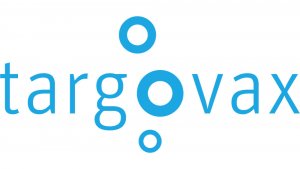Encouraging news from BerGenBio
A second group of patients have been added to an ongoing phase II clinical study of a drug combination to treat lung cancer.
The ongoing trial is a collaborative effort between two members of Oslo Cancer Cluster: Norwegian biopharmaceutical company BerGenBio and US-based pharmaceutical company Merck (known as MSD in Europe). It involves an kinase inhibitor called bemcentinib, developed by BerGenBio, in combination with an immunotherapy drug called Keytruda (also known as pembrolizumab) from MSD.
“Throughout 2018, we reported encouraging updates from our ongoing proof-of-concept phase II clinical trial assessing bemcentinib in combination with Keytruda in advanced lung cancer patients post chemotherapy.”
Richard Godfrey, Chief Executive Officer, BerGenBio
The second group will involve patients that have been treated with immunotherapy before, but that have experienced a progression of the disease. There are various treatments available for patients with non-small cell lung cancer, but patients often acquire resistance to treatment. New treatments that can overcome these resistance mechanisms are therefore urgently needed.
“I am pleased that we are now extending the ongoing trial to test our hypothesis also in patients showing disease progression on checkpoint inhibitors.”
Richard Godfrey, Chief Executive Officer, BerGenBio
The aim is to evaluate the anti-tumour activity of this new drug combination. Preliminary results from the second patient group of the study are expected later this year. BerGenBio is in parallel also developing diagnostic tools to see which patients are most likely to benefit from their drug.
The decision to extend the trial was based on new positive results from pre-clinical studies, which were presented at the American Association of Cancer Research (AACR) earlier this week. The results open for the possibility to use bemcentinib both as a monotherapy and in combination with other cancer treatments on a broad spectrum of cancers.
- For more information, read the full press release on BerGenBio’s official website.











